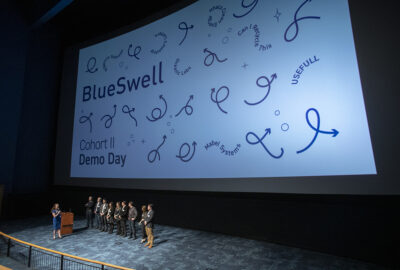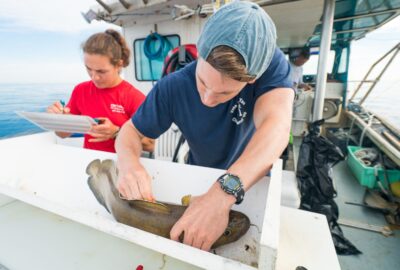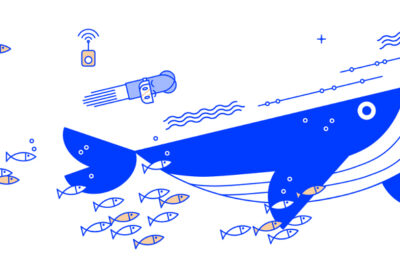BlueSwell Incubator Program: Where Are They Now?
We caught up with three founders to hear how their companies have grown since participating in our bluetech startup incubator program.
By New England Aquarium on Tuesday, July 18, 2023

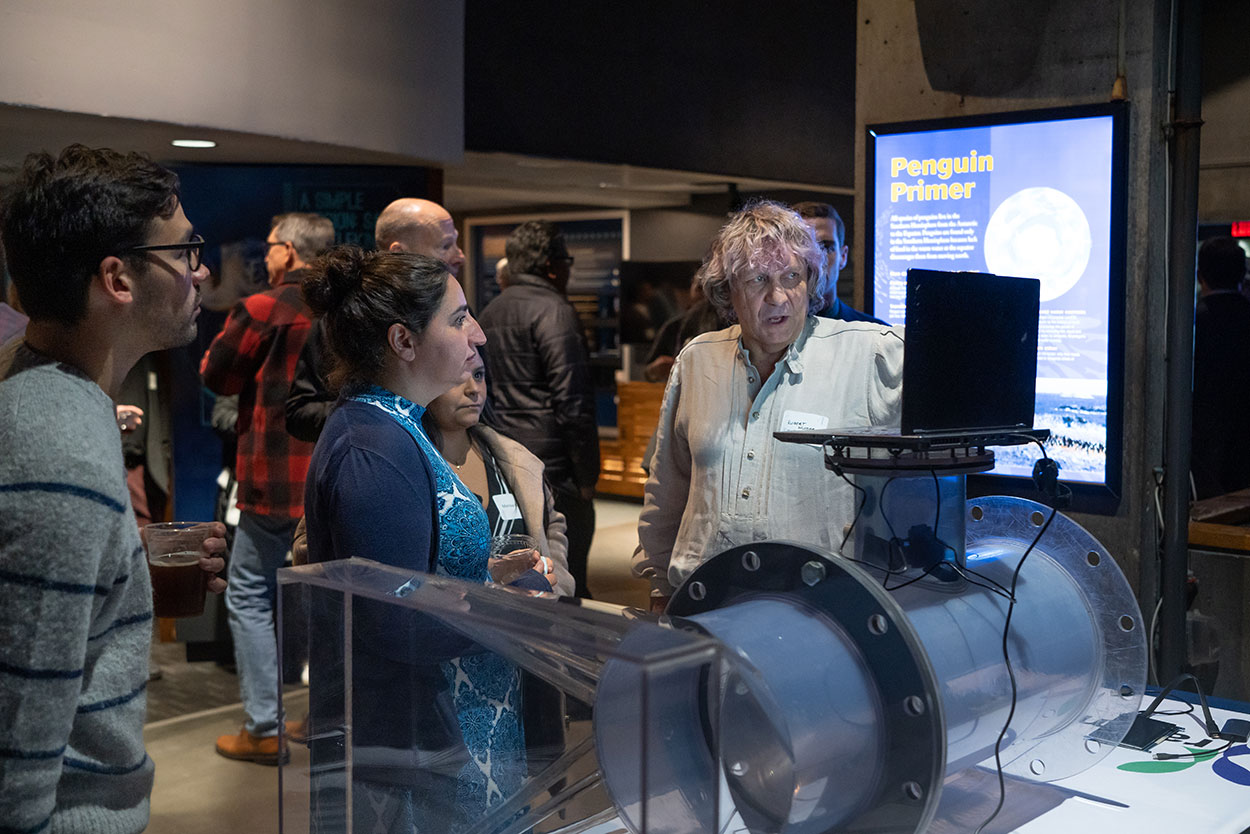
For the last three years, the New England Aquarium, in partnership with SeaAhead, has welcomed 20 bluetech startups to the BlueSwell Incubator program to help fund their work, provide mentorship, and access new networks. Thus far, the entrepreneurs in the program have offered a variety of products or technologies that have a positive impact on the ocean and sustainable ocean industries, from AKUA’s responsibly farmed kelp burgers to combat destructive food agriculture practices, to USEFULL’s commitment to a plastic- and waste-free society to lessen pollution, to SeaDeep’s ability to help people see underwater for “sustainable, efficient, and safe development of the ocean.”
Since the program’s launch in 2020, much has changed: what used to be a completely virtual experience is now in-person with virtual components, participants being provided more financial support than in previous years ($35,000 to $50,000), and evolution of the programming approach.
“We’re learning to balance the program between diving deep and scaling among our cohort, between custom and one-size-fits-all programming. For example, ‘early stage’ in the startup world can mean very different things between hardware and software, and ‘pre-seed’ can still span across idea stage to post-revenue,” Katherine Woolford, BlueSwell’s program manager, says.
Woolford adds, “This year, we’re also engaging regional corporations who care about clean oceans, sustainability, innovation, and local livelihoods to offer pilot opportunities
and programmatic support for our startups.”
Now, as the five-month-long program—which culminates in a Demo Day event where founders share their progress—reviews applications for the fourth cohort, three former members share what they’ve learned, what they miss the most, and what they hope for the future.
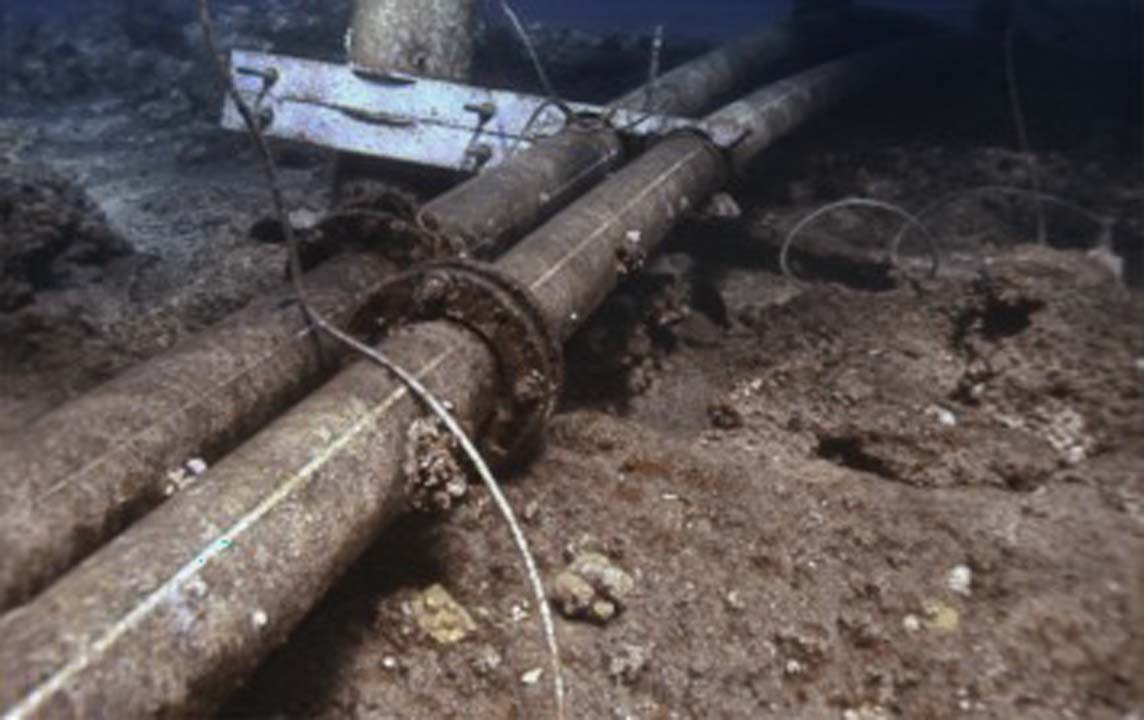
SeaDeep
Eric Osherow’s company, SeaDeep, has committed to better understanding the ocean so humans can engage with it sustainably. They do that by helping users see what’s beneath the sea’s surface using their AI. CEO and co-founder Osherow, a lover of whales with a “deep reverence for nature,” says his path to SeaDeep was borne of frustration. He grew up in South Florida and remembered the Gulf Oil spill; he’s seen bleached coral (caused by warming waters) firsthand as a scuba diver and recognized sonar’s negative effects on whales. These frustrations and others pushed Osherow and his co-founders to create a solution—subsea vision that could identify critical data in realtime—to stymie some of these problems.
During BlueSwell, Osherow—who was part of the first cohort—appreciated the “access to knowledge, and what that knowledge can bring you,” along with the cultivation of a diverse “supportive and open community,” he says.
The company just launched its first product this past fall.
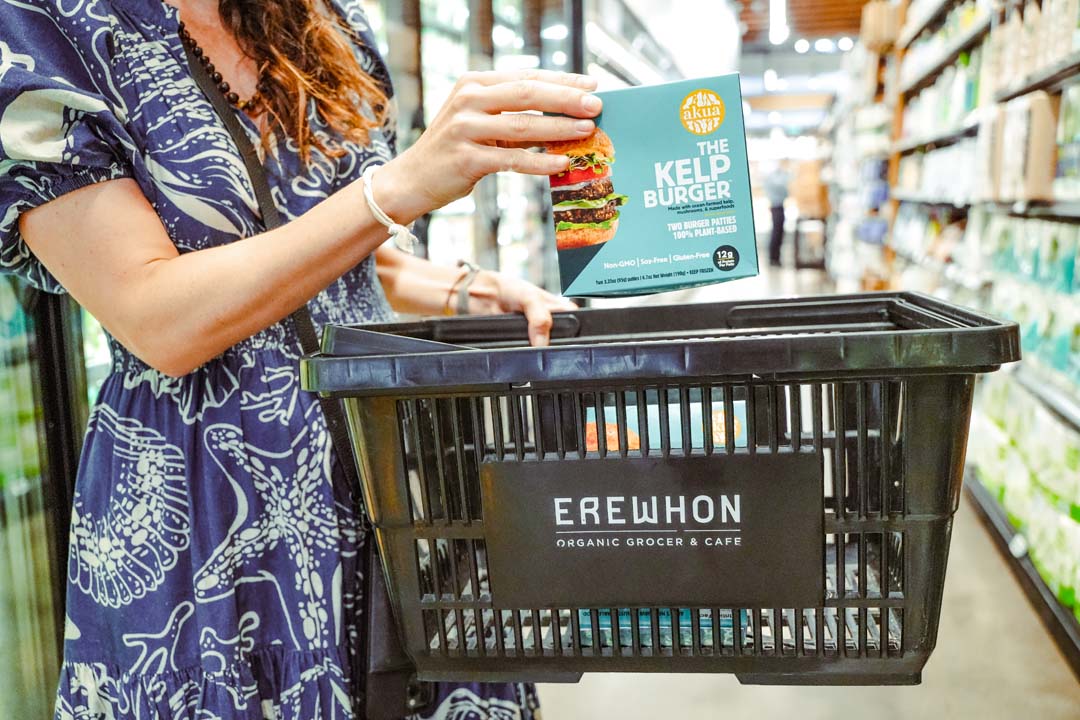
AKUA
While scrolling through Instagram, it’s hard to miss the enticing ads for AKUA, a company touting healthy plant-based burgers made from kelp. AKUA’s CEO and founder, Courtney Boyd Myers, grew up between Connecticut and Cape Cod, spending warm summer days swimming in the ocean, laughing, and eating seaweed. As an adult, Myers still loves to eat seaweed and thinks it’s interesting that Americans don’t consume it as much as Asian populations. She says, “It’s been part of most coastal evolution stories worldwide, from Asia to Africa to South America, and yet, somehow fell off the modern-day food map.”
Myers is on a mission to change that with AKUA. AKUA’s products are all made from sustainably harvested kelp, which removes CO2, produces ocean oxygen, reduces ocean acidification, and is high in protein and fiber.
To help network within the ocean impact space, Myers applied to and got into BlueSwell. She says the grant money was very helpful, but refining the company’s impact statements proved critical.
“The more we grow [as a company], everything we say gets put under a microscope. BlueSwell helped refine our impact statements around CO2 removal, and now we can say the New England Aquarium and BlueSwell have verified these statements.”
Myers’ company also received $75,000 in funding from SeaAhead’s Blue Angels Investment Group due to the program’s introductions.
Since its launch, AKUA has been gaining ground (their products are now sold in 700+ retail stores across the country), particularly on the West Coast. Recently, Myers appeared at the Natural Products Expo West in Anaheim, CA, where the company introduced two new burger flavors. And, now has a partnership with Nickelodeon’s SpongeBob SquarePants underway.
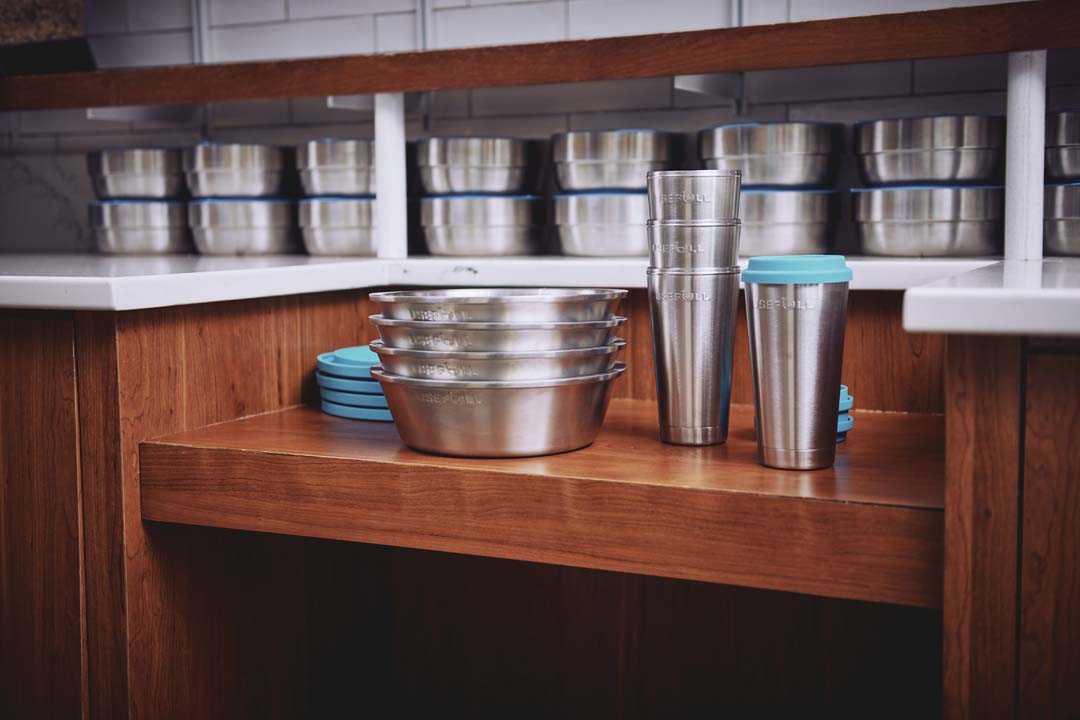
USEFULL
Founder and CEO Alison Rogers Cove envisions a plastic- and waste-free society. To help, her company USEFULL provides reusable stainless steel products, such as cups, bowls, plates, and silverware, and technology to colleges, companies, and communities to start their waste-free journeys.
“Takeout packaging is what we’re targeting. So containers for your burger and fries to go, your favorite sandwich and chips or your salad, and even your coffee, your teas,” Cove says. In-place dining would still use standard plates and cups.
Cove loved the BlueSwell program and would do it again if she could, she shares. BlueSwell provided Cove with valuable connections including Alissa Peterson, co-founder of SeaAhead, and Lena Weiss, a fisheries specialist with the Fisheries and Aquaculture Solutions program at NEAq’s Anderson Cabot Center for Ocean Life, who was particularly beneficial. Previously, Weiss worked at the US Environmental Protection Agency. “She helped validate our waste mitigation data, and that is a huge selling point with our college partners.”
USEFULL has come a long way since the start of the program. The initial round of funding the company raised helped “launch some college campuses and build out our inventory. And it’s been wildly successful,” Cove says.
This story originally appeared in the Spring 2023 issue of blue member magazine.

